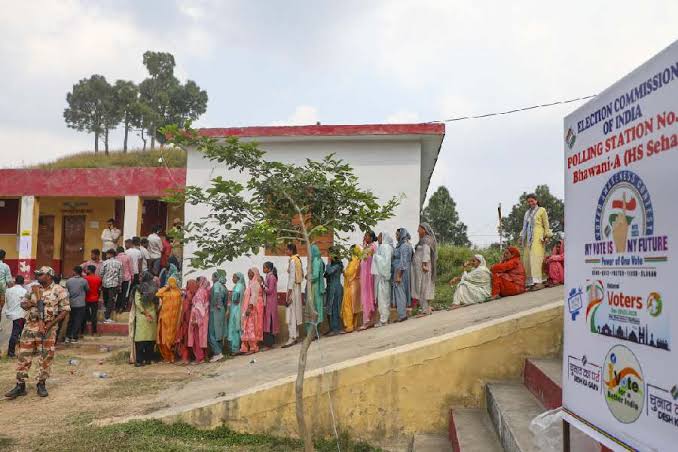Public excitement grows as discussions about election outcomes flourish in cafés, markets, universities As the administration finalises arrangements for the counting of votes across all 90 assembly segments in Jammu & Kashmir, scheduled for October 08, residents here are abuzz with discussions about potential political outcomes. The vote count coincides with elections in Haryana, where voting is set to take place tomorrow.
From Lakhanpur to Banihal, there is a palpable sense of excitement among the public, who are hopeful for the formation of a popular government after a long wait of nearly six years.
Conversations are thriving in busy tea stalls, standalone restaurants, cafés, universities and markets as people engage in intense discussions about the upcoming election results.
Gopal Dass, an elderly morning walker at Jammu University, shared his excitement with the news agency , saying, “We were very excited when the elections were announced, and after the successful polling process, we are now discussing the results.” Sipping hot tea at Sharma Tea Stall, he said the independent candidates might play a crucial role in government formation this time around.
Nitin Sharma, another morning walker, shared insights based on voting and campaign trends. He said the National Conference could secure a majority of the 47 seats in Kashmir, while the BJP might dominate the 43 seats in Jammu. “This indicates a hung assembly, where independents hold the key to government formation,” he added.
The lively atmosphere was mirrored at a café in the posh Channi area of Jammu, where a group of young friends calculated seat projections for each party. One member signalled to the waiter for a plain sheet of paper, while another quickly grabbed a napkin to jot down party names and their anticipated seat counts. They dissected each constituency, weighing the pros and cons of individual candidates to identify probable winners.
Despite the government’s restrictions on exit polls for the Jammu & Kashmir Assembly elections until October 05, political discussions flourished. People engaged in conversations about the elections during temple visits, while waiting for public transport or even while getting haircuts at local barber shops.
Earlier, the Election Commission reported a turnout of 63.88 percent at polling stations during the three-phase assembly election that began on September 18, surpassing the 58.58 percent recorded in the Lok Sabha polls.




